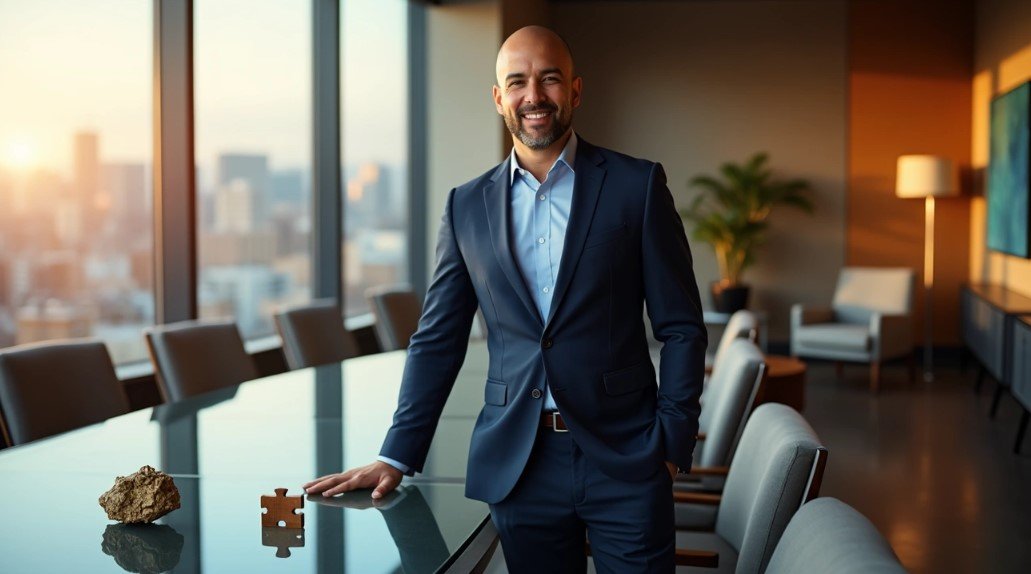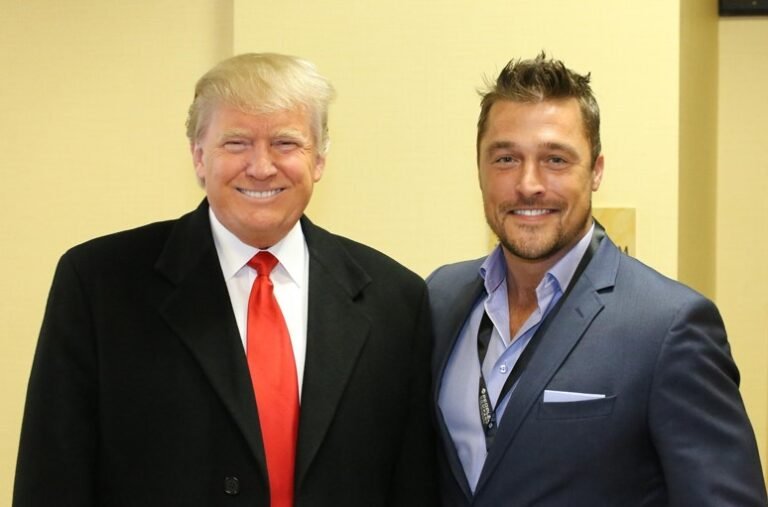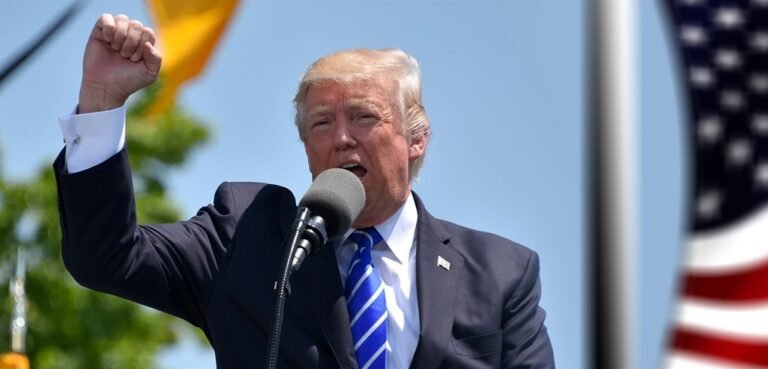When Daniel Lubetzky sold Kind Snacks to Mars Inc. for $5 billion in 2020, the entrepreneur behind Somos demonstrated just how powerful the right investment strategy can be. As the first Hispanic person to hold a full-time chair on Shark Tank, Lubetzky has developed a keen eye for spotting promising businesses.
In fact, his investment platform, Camino Partners, has already committed at least $350 million to growth-stage startups, including popular brands like Cava and Prose. What makes Lubetzky’s approach unique is his focus on what he calls “the three its: grit, wit, and fit” – qualities he looks for in every business opportunity. Beyond just financial metrics, he prioritizes “entrepreneurial zeal,” that special hunger found in resourceful problem-solvers who can adapt during challenging times.
We’ll dive into how these principles shaped Lubetzky’s success and how they continue to guide his investments today, including his work with Somos. Whether you’re an aspiring entrepreneur or simply curious about what catches a Shark’s attention, this inside look at Lubetzky’s formula reveals valuable lessons for business growth in any economic climate.
The Three ‘Its’ That Define Lubetzky’s Investment Formula
Lubetzky’s approach to business investment isn’t based on complicated algorithms or financial models. Instead, he relies on a straightforward yet powerful framework he calls “the three its” – grit, wit, and fit. This trio of qualities forms the backbone of every investment decision he makes through Camino Partners and his other ventures.
Grit represents the resilience and determination essential for entrepreneurial success. For Lubetzky, this means finding founders who demonstrate unwavering persistence even when facing seemingly insurmountable obstacles. He looks for business leaders who show a history of overcoming challenges rather than those who’ve had an easy path. This quality particularly resonates with Lubetzky’s own journey building Kind from scratch despite numerous early rejections.
Wit goes beyond mere intelligence. Lubetzky searches for creative problem-solvers who can think outside conventional boundaries. He values founders who demonstrate resourcefulness and adaptability – those capable of finding innovative solutions with limited resources. This quality manifests in entrepreneurs who question industry assumptions and find unique angles to differentiate their products or services from competitors.
Fit encompasses how well the business aligns with Lubetzky’s values and expertise. He prioritizes companies where his experience can add substantial value beyond just capital. Furthermore, fit involves assessing whether the founder’s vision aligns with sustainable business practices and authentic brand building – principles that guided Kind’s development.
What makes this formula especially effective is how these elements work together. A founder might demonstrate exceptional grit but lack the wit to pivot when necessary. Alternatively, a brilliant concept might fail without the grit to persevere through inevitable setbacks.
Through his Shark Tank appearances, Lubetzky consistently evaluates potential investments against these three criteria. Beyond merely examining business plans or financial projections, he studies the entrepreneurs themselves – their stories, how they handle tough questions, and most importantly, whether they embody the three qualities that have defined his own successful ventures.
This investment philosophy subsequently guided Lubetzky’s development of Somos, where these principles continue to shape the company’s growth and direction.
Why Entrepreneurial Zeal Matters More Than a Business Plan
For Lubetzky, the blueprint of business success isn’t found in polished spreadsheets or elaborate market analyzes. “The only given is that there are no givens,” he often remarks, highlighting why he values entrepreneurial zeal above business plans.
According to Lubetzky, entrepreneurial zeal represents “a special hunger found in resourceful, creative problem-solvers”. This unique quality tops his checklist when evaluating potential investments because it indicates something business plans can’t show: how founders will navigate unpredictable challenges that inevitably arise.
While many investors scrutinize financial projections, Lubetzky searches for the intangible spark that drives entrepreneurs to persist when conventional wisdom says to quit. He believes this inner fire keeps founders pushing forward after rejections, failures, and chaos – inevitable components of any business journey.
Entrepreneurial spirit manifests through several observable behaviors. Those who possess it consistently take ownership of problems, asking “How could we do this better?”. They actively seek improvement opportunities and create solutions rather than waiting for instructions. Moreover, they approach challenges with a solution-oriented mindset, seeing obstacles as opportunities for innovation.
Successful entrepreneurs also demonstrate remarkable adaptability. As Lubetzky notes, business-building guarantees nothing except uncertainty. Consequently, he values founders who can think creatively when conventional approaches fail – using their heads to pivot quickly and seeing opportunity where others see dead ends.
This philosophy explains why founders with tremendous passion often outperform those with perfect business plans. When passion fuels the work, “every step will feel like a pleasure, not a chore”. Passion creates persistence, and persistence ultimately determines which ventures survive inevitable roadblocks.
The entrepreneurial mindset “never stays still—it’s constantly looking for the next opportunity or challenge”. This continuous forward momentum, coupled with resilience and creative problem-solving, makes entrepreneurial zeal an irreplaceable quality that Lubetzky prioritizes above all else.
“That’s so hard to recreate,” Lubetzky emphasizes about this distinctive quality. Essentially, while business plans can be revised, entrepreneurial zeal must come naturally – you either have it or you don’t.
How the ‘Three Its’ Shaped the Success of Somos
Somos Foods began when three Mexican-born friends noticed a surprising gap in American grocery stores. Miguel Leal, Daniel Lubetzky, and Rodrigo Zuloaga had enjoyed watching Mexican cuisine evolve in restaurants but were disappointed by what they found on store shelves.
“The three of us were living in New York City and were marveled by how much Mexican food changed in restaurants,” explains Leal. “It became fresher, more authentic, and reminded us of the food we ate growing up. But we didn’t see that change on the shelf.”
Their vision for Somos perfectly showcased Lubetzky’s “three its” investment philosophy. First came grit – the perseverance needed to overcome seemingly impossible challenges. Initially, Somos faced a fundamental supply chain problem: Mexican suppliers weren’t certified to create gluten-free, non-GMO, plant-based products. Instead of abandoning their vision, they built “the first gluten-free, non-GMO, plant-based supply chain in Mexico.”
The founders’ wit shone through their problem-solving approach. As Leal notes, “Relationships are very important in Mexican culture,” so they invested time developing connections with family farms and manufacturers. This relationship-building paid off when COVID disrupted their plans. Following a pivot to direct-to-consumer boxes during the pandemic, they had to reinvent themselves yet again when in-person shopping resumed.
Regarding fit, Somos exemplifies Lubetzky’s belief in authentic brand-building. The company uses packaging inspired by alebrijes (Mexican folk art) and partners with Mexican vendors whenever possible. Their products mirror traditional Mexican cooking techniques like “tatemado,” a slow-roasting process that enhances flavor.
The results speak volumes. Within just two years, Somos products appeared in over 9,000 retail locations nationwide. Additionally, they’ve proven Mexican food doesn’t need to be “greasy” or “full of fat” – breaking misconceptions through nutritious, plant-based offerings.
Through every challenge, the founders have maintained what Lubetzky values most: entrepreneurial zeal. “We’re playing the long game,” says Leal, demonstrating the forward-thinking mindset that characterizes truly successful ventures.
Conclusion
Daniel Lubetzky’s success story offers profound insights for entrepreneurs seeking to build resilient businesses. Through his investment philosophy of “the three its,” Lubetzky demonstrates how entrepreneurial qualities often matter more than perfect business plans. Grit, wit, and fit serve not just as evaluation criteria but as foundational principles that guided both his $5 billion Kind Snacks success and now Somos Foods’ rapid expansion.
What stands out most significantly about Lubetzky’s approach? His unwavering belief that entrepreneurial zeal remains the most valuable asset in business. This quality—combining resilience, creativity, and authentic passion—has repeatedly proven its worth during unpredictable challenges. Somos Foods exemplifies this perfectly, having overcome supply chain obstacles and pandemic disruptions through the same principles that built Kind.
Therefore, aspiring entrepreneurs should consider looking beyond conventional business metrics. Lubetzky’s journey suggests that developing personal qualities like persistence, innovative thinking, and authentic brand alignment might yield better results than obsessing over perfect financial projections. His formula works because it addresses the human elements behind successful businesses.
Ultimately, Lubetzky’s investment strategy reminds us that business success doesn’t follow a predictable formula. The path involves uncertainty, adaptation, and countless obstacles. Nevertheless, entrepreneurs equipped with grit to persevere, wit to solve problems creatively, and authentic fit with their mission stand the best chance of thriving. These timeless principles, rather than trendy business tactics, continue to distinguish truly exceptional ventures from the rest.



















